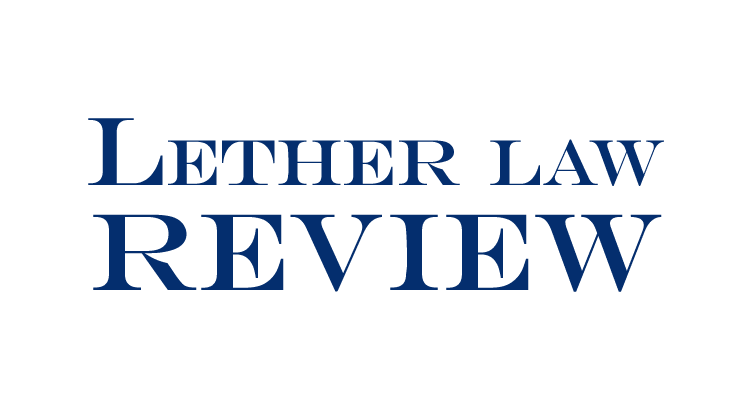Lether Law Group is engaged in appellate practice across multiple jurisdictions including multiple State Courts of Appeals and the Federal Circuit Courts of Appeal. As any experienced insurance defense litigator knows, a win at the trial level for your client is often not the end of the story. Accordingly, in this week’s newsletter, our office will share some helpful practice pointers we have gained through our litigation in the various Courts of Appeals.
A Complete Record – The first and most essential step in any appeal is assuring you and your client have the complete trial court record. While seemingly elementary, effective appellate advocacy starts with a complete underlying record. Once the Appellant has designated the clerks’ papers and statement of arrangements, and prior to receiving a copy of those clerks’ papers, proactively cross reference opposing counsel’s designation with the trial court docket. If any relevant pleading is absent, or any potentially relevant pleading is absent from opposing counsels designated clerks’ papers, move to supplement the clerk’s papers. Failure to do so will foreclose an appellate attorney’s ability to argue a potentially relevant issue or procedural aspect before the appellate court.
Comprehensive Legal Briefing – There is a natural tendency in appellate practice to rely partly upon the briefing at the trial court level because the issues in question were fully litigated. However, it would be an error to rely on the underlying briefing and assume it is sufficient for a review by the Court of Appeals. Rather, effective appellate practice requires a total reassessment of the underlying case from the facts as plead to the citations relied upon by the parties. The loadstar for any appeal is the standard of review. A de novo review by the Court of Appeals will requires a total reevaluation of the underlying case in a manner that a review for abuse of discretion might not. Further, the caselaw relied upon by the parties at the trial court level may have changed in the time since the trial court’s decision and should always be verified as to the holdings they purport. Accordingly, the process of drafting an appeal often requires a ground up reassessment of the facts and law surrounding the trial court’s decision.
Patience – Appeals take time. The average lifespan of an Appeal is 18 to 24 months. Even after the Court of Appeals receives all briefing from the parties, it will often take 6 to 10 months or more to render a decision on the matter. Given this expansive timeline, it is helpful to communicate reasonable expectations to your client about the resolution their appeal. Further, it is essential to communicate with the client periodically throughout this time to inform them you are monitoring the matter throughout the lengthy appeals process.
Lether Law Group currently represents clients in multiple jurisdictions for their appellate matters. For questions regarding acute appeals State Courts of Appeal or the Federal Circuit Courts of Appeal, please feel free to contact our office.

Chris Kranda
Associate Attorney
Born and raised in the pacific northwest Chris attended Seattle University’s Matteo Ricci College where he graduated cum laude with a bachelor’s degree in Humanities. He remained in the area and earned his Juris Doctor Seattle University School of Law.
During law school, Chris externed in US District Court for the Western District of Washington for the Honorable Robert S. Lasnik, and later worked as a Rule 9 prosecutor before joining the King County Prosecutor’s Office as a Deputy Prosecuting Attorney. He served in District Court and Violent & Economic Crime Units from 2019 to 2021 before joining Lether Law Group to begin his civil practice.
In his free time, Chris enjoys camping, fly fishing, and road trips.

